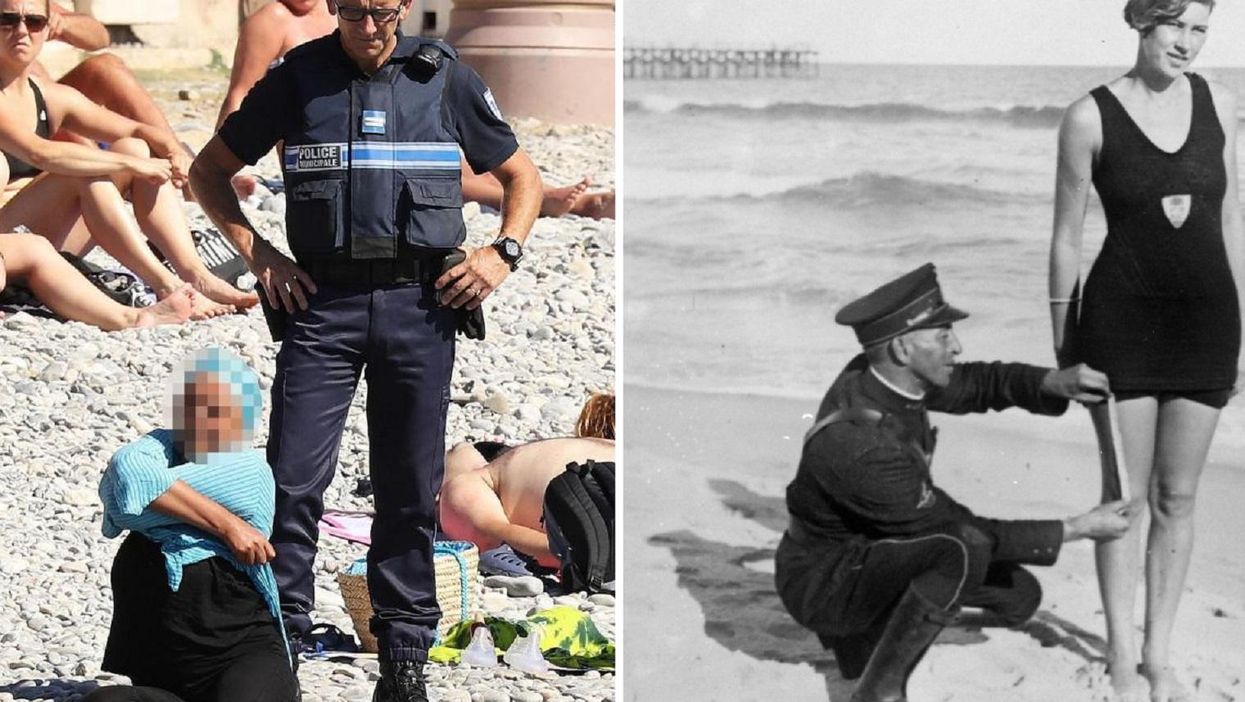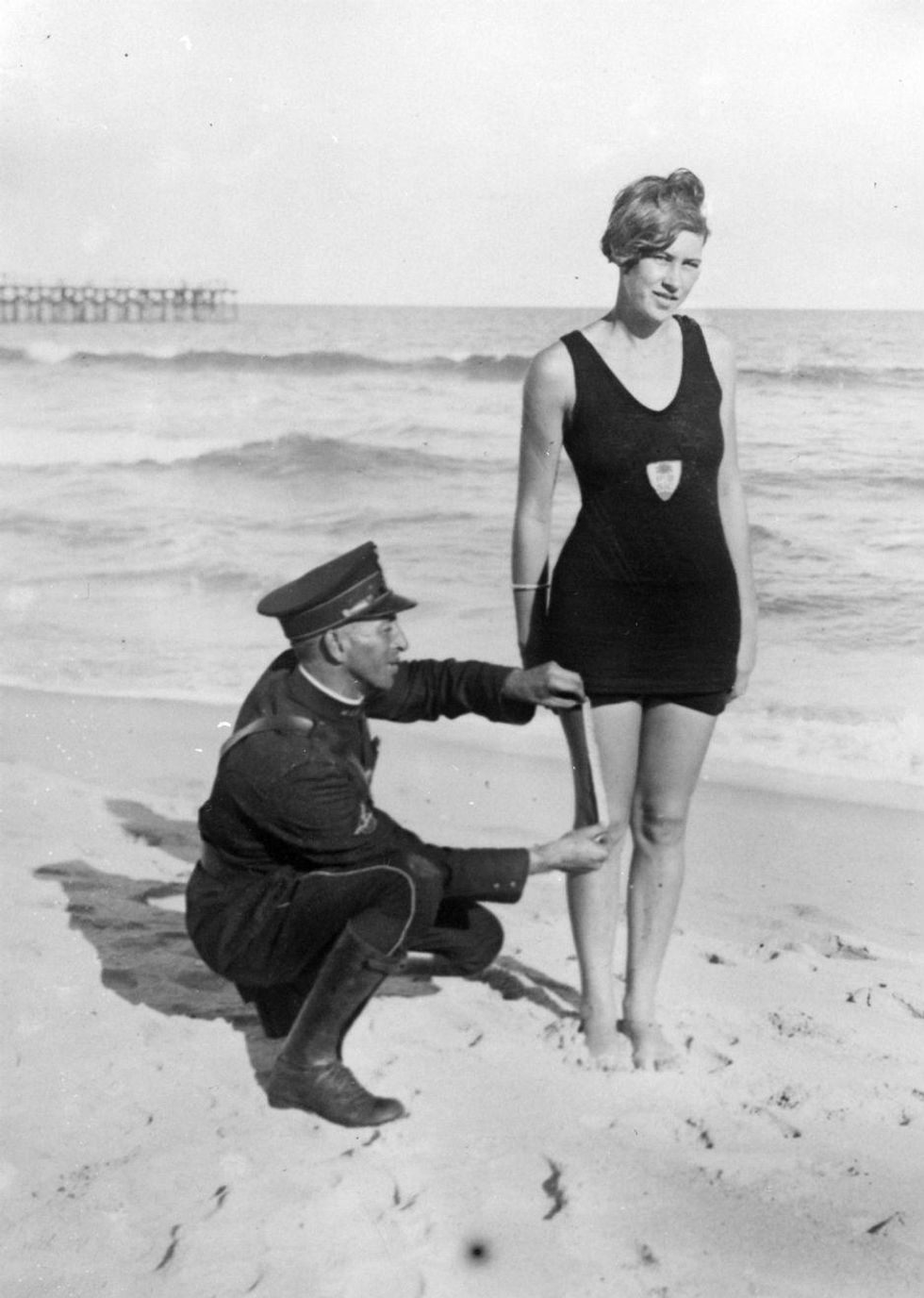News
Evan Bartlett
Aug 24, 2016

Left: Vantage News, Right: Getty
The world reacted with shock on Tuesday night as photos emerged which showed armed police forcing a woman to remove clothing on a beach in the south of France.
The move comes after a series of towns in the country banned full-body swimsuits known as the "burkini", claiming that it would help to liberate women from oppressive religious dress codes and help integration.
French prime minister Manuel Valls said the swimsuit worn by some Muslim women was not compatible with French values and is based on the "enslavement of women".
As well as being subject to a legal challenge from human rights groups, members of the public have reacted with consternation at a ban that sees the state forcing them what to wear in public.
As photos of the woman on the beach in Nice were circulated on Wednesday morning, a common comparison made was with a photo of a police officer measuring the length of a woman's swimsuit in 1925.
The photo on the left shows "Smokey" Buchanan, from the West Palm Beach police force, measuring the bathing suit of Betty Fringle on Palm Beach, to ensure that it conformed with regulations introduced by beach censors.
Picture: General Photographic Agency/Getty Images
As this photo essay by Mashable explains, beachwear censorship in the West goes back to at least the early 20th century when people started to move away from the cumbersome outfits of the Victorian era and authorities fought against it.
Back then it was about telling women to cover up, but now police are telling women to take clothes off.
While some have argued the comparison oversimplifies the burkini issue in France, others have used it to demonstrate that women have always been policed on what they wear.
More: This cartoon makes a brilliant point about the way women are always judged
More: A French cartoonist has summed up exactly why the burkini debate is so ludicrous
More: The more France tries to ban the Burkini, the more Non-Muslims are buying it
Top 100
The Conversation (0)














